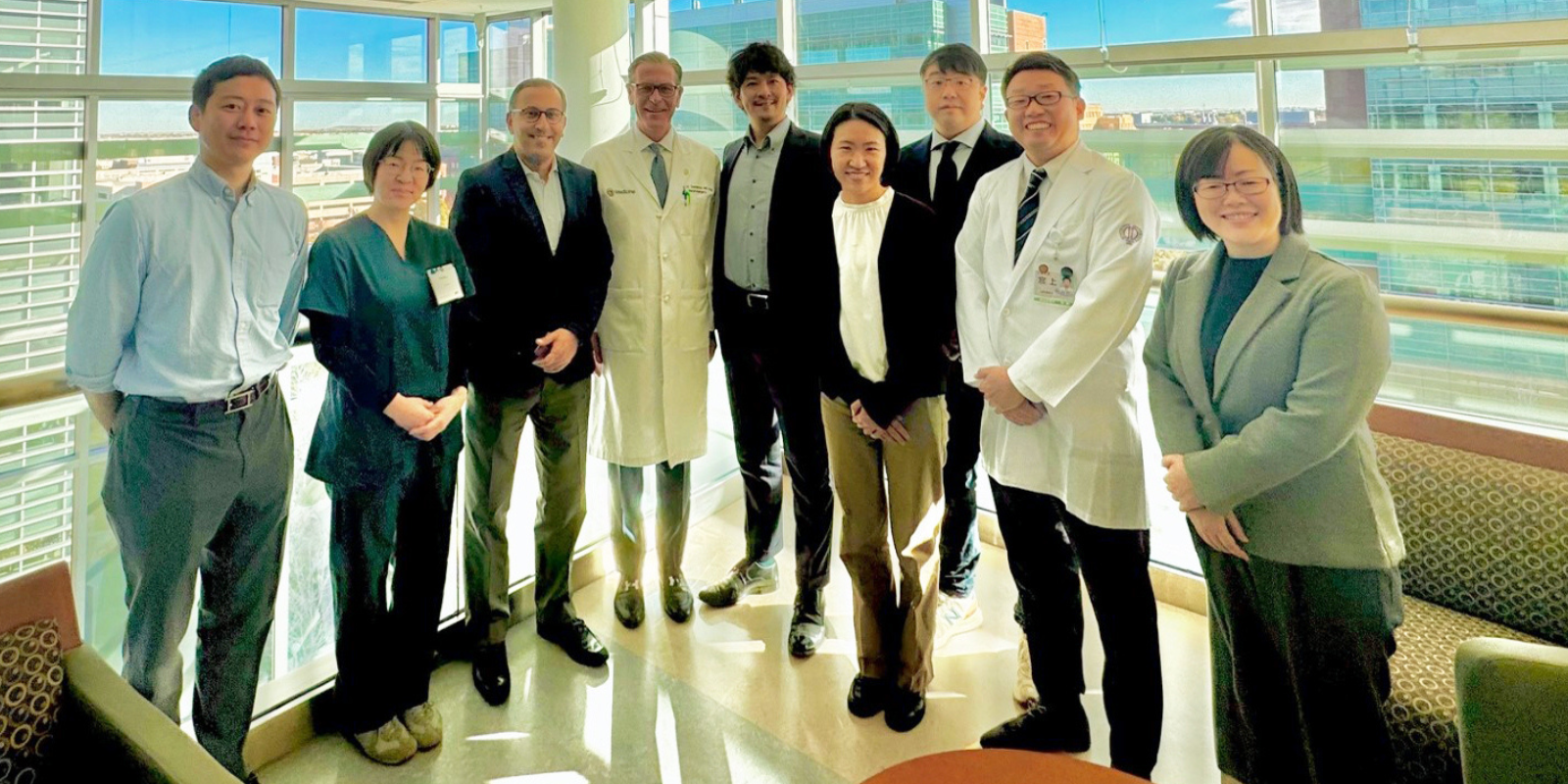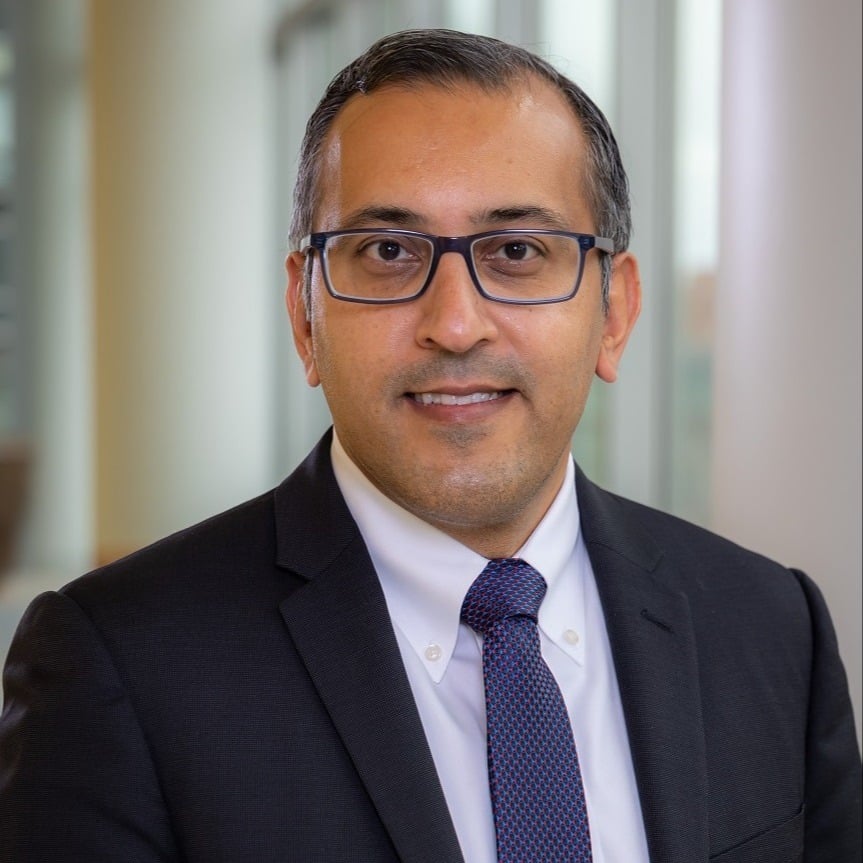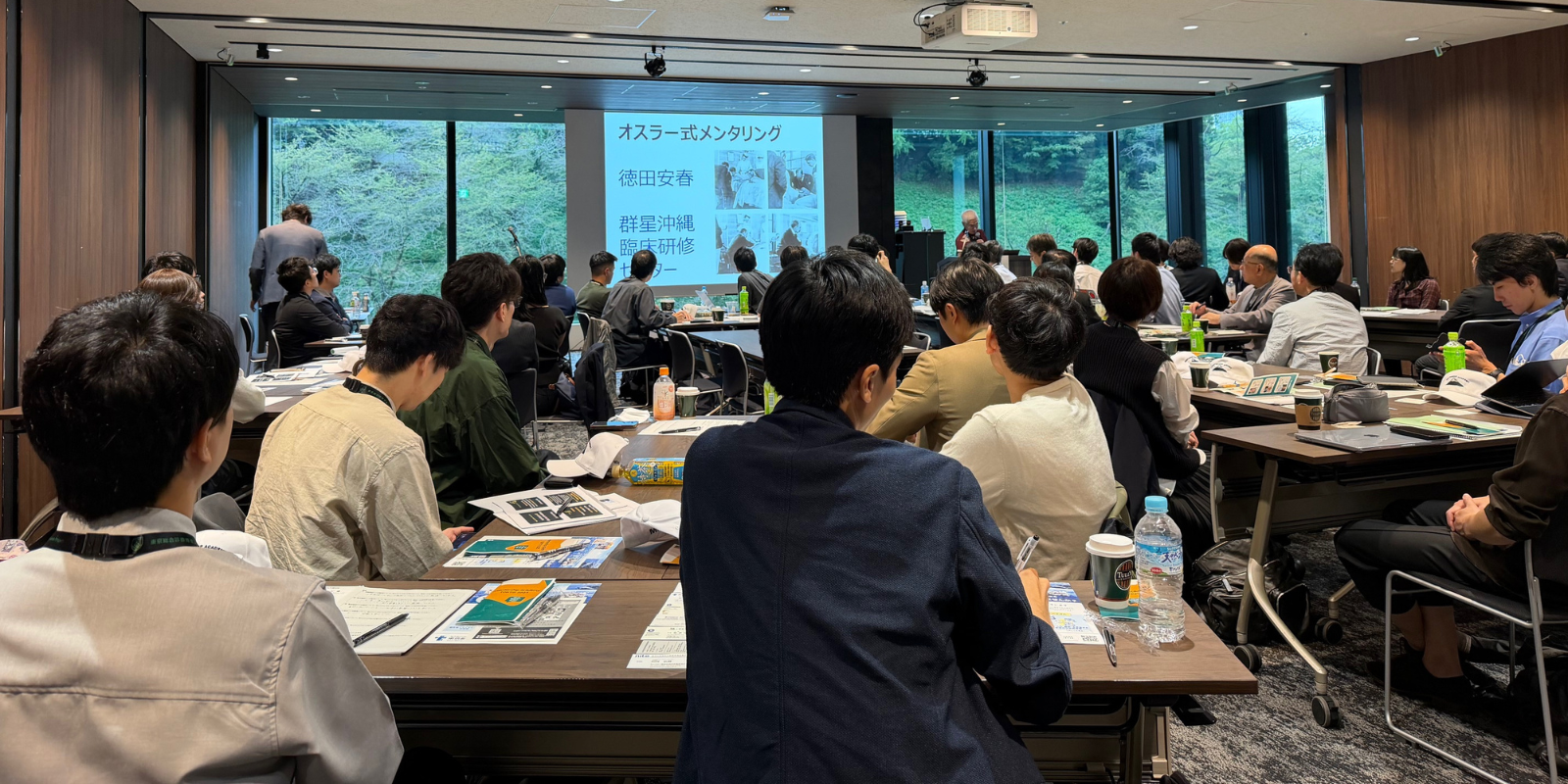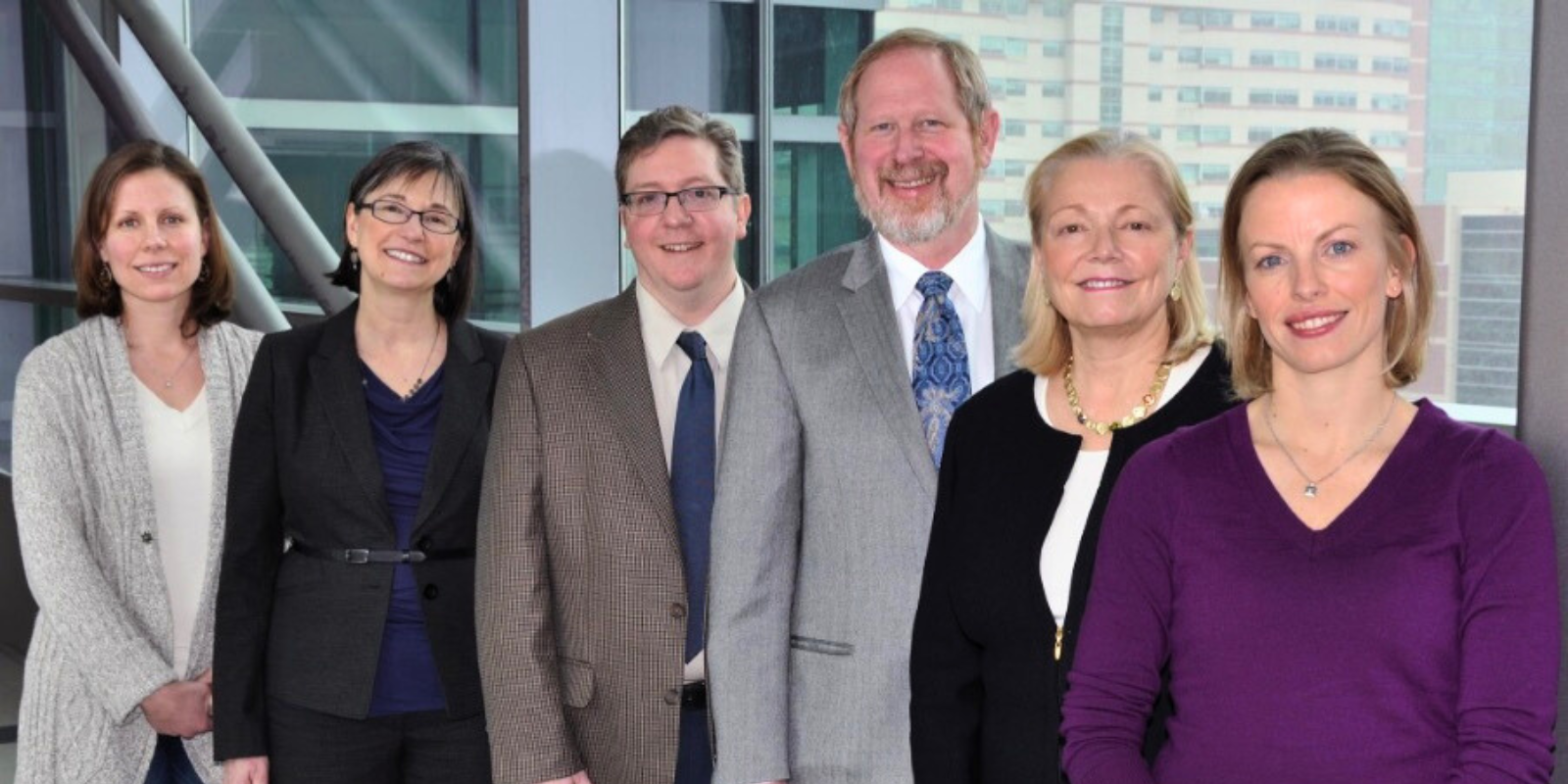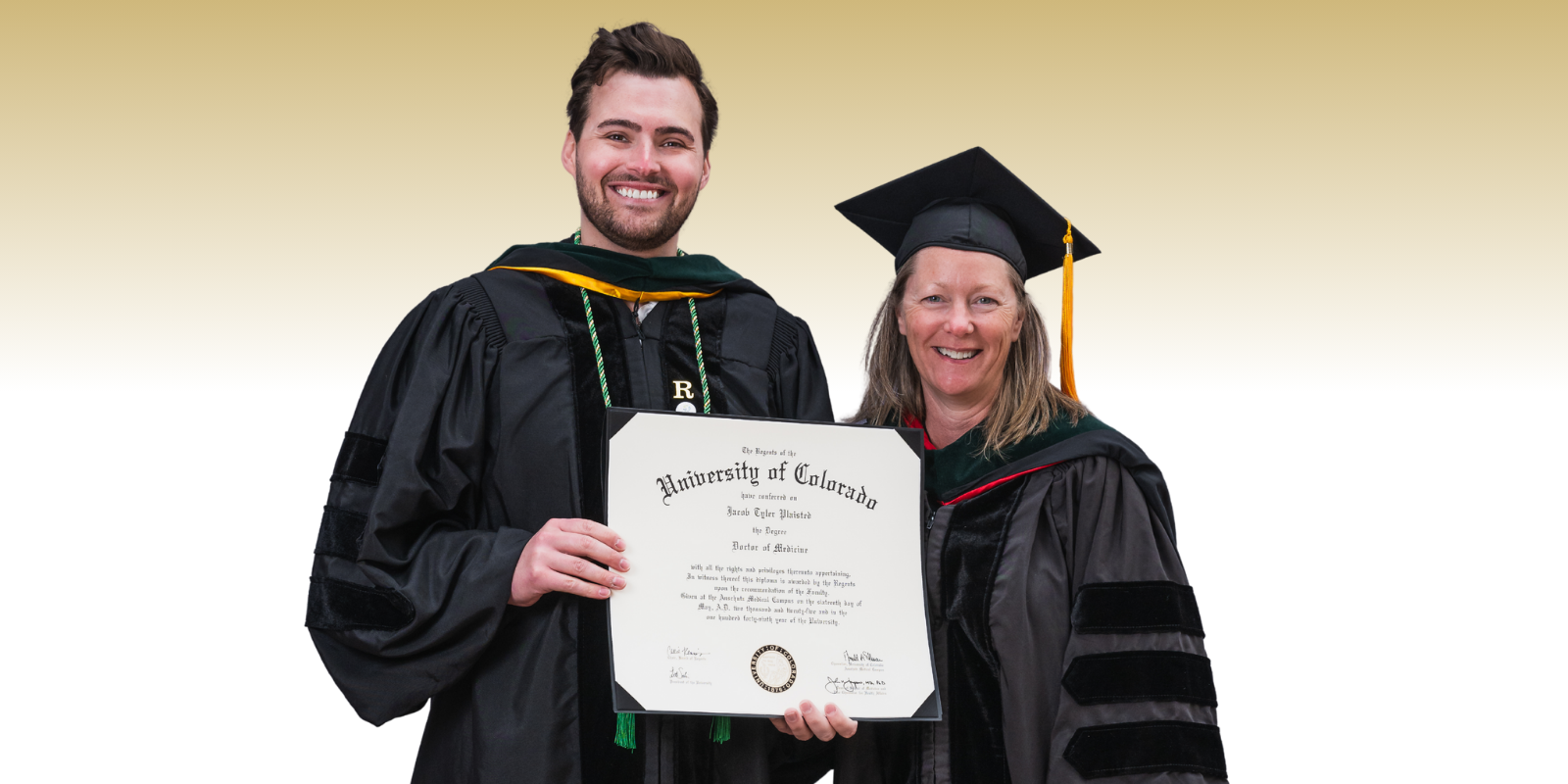During a weeklong visit to the University of Colorado Anschutz Medical Campus, an esteemed delegation of senior physicians and medical professors from Japan said they were impressed by what they saw and learned much to share with their colleagues back home.
The visitors, mostly from the Tokyo and Kyoto areas, were invited by Vineet Chopra, MD, MSc, chair of the CU Department of Medicine, while he was on a recent visit to Japan. Chopra, who went to high school in Japan, has made global health a departmental priority.
While on campus, the visitors attended the department’s daylong Mentorship Academy workshop on Nov. 4. They also met with Chopra and John Sampson, MD, PhD, MHSc, MBA, dean of the CU School of Medicine, as well as various department leaders and clinicians, and they rounded with hospital medicine service teams and toured labs.
→ Mentorship is a Mission: New CU Department of Medicine Programs Aim to Launch and Boost Careers
Chopra says he was delighted to welcome the visitors to CU.
“Exchanges like this help us not only share our best practices, but also learn new ways to approach old problems,” Chopra says. “We are working closely with our Japanese colleagues to design, inform, and build the specialties of general and hospital medicine in Japan. Their visit thus represents a key step forward in this partnership and opportunity.”
Much to take home
In a roundtable conversation during their visit, group members said that what they learned at CU Anschutz would help them in their work to improve Japanese hospital systems and mentorship practices. They noted, for example, that in Japan, fewer hospitals have a hospitalist system, which they observed in action during their visit.
Group members said they were impressed by the high quality of training they encountered among attending physicians and residents, and they gained a greater understanding of differences in the two nations’ medical education systems. The group also highlighted the importance of international exchange to enhance global health practices.
→ ‘It’s So Valuable’: CU Faculty Highlight New Mentorship Program
In the discussion, the visitors outlined three main themes of their visit that they hoped to put into practice back home:
- Finding ways to foster more effective mentorship programs in Japan to address cultural challenges and a lack of effective evaluation in academic medicine.
- Advancing the introduction of a hospitalist system in Japan to better serve an aging population and to cope with an increase in certain serious diseases, such as bacterial infections.
- Facilitating a more robust international exchange of ideas and best practices to improve medical education and hospital systems across different countries.
‘A totally different system’
Takashi Watari, MD, MHQS, MCTM, PhD, associate professor at Kyoto University Hospital and its Integrated Clinical Education Center, attended last year’s Mentorship Academy as well. Watari said that in Japan, the concept of mentorship is “totally misunderstood” by some. He said the Japanese language lacks a distinct word for “mentor,” and instead a variation of the English word is used.
“In the Edo period, we had a shogun and samurai,” Watari said. Today, “people tend to connect that kind of strong hierarchy to the concept of mentorship. We tend to respect the senior leader too much. Here, this is a totally different system. It’s very frank.”
Maki Someya, MD, assistant professor at Kyoto University Hospital and the Integrated Clinical Education Center, said that in her opinion, “some faculty members in Japan dislike mentorship. But at the Mentorship Academy here, every speaker sounded like they enjoy mentoring, and both the mentors and the mentees see benefits. That’s a big learning point for me, and we should share that with our Japanese faculty colleagues.”
More observations
Other comments by group members:
- Yusuke Yasumoto, MD, MPH, a general practice physician at Itabashi Chuo Medical Center in Tokyo and head of its general medicine residency program, said he appreciated the opportunity to round and study the hospital system during his visit. He said he was particularly interested in patient safety and quality improvement programs here.
- Taiju Miyagami MD, PhD, assistant professor in the Department of General Medicine at Juntendo University in Tokyo and an official of Juntendo University Hospital, said he came to learn more about the hospitalist system here and to find ways to develop it in Japan. He said he plans to return next year to study the system further.
- Tomohiro Matsumoto, MD, DDS, PhD, head of the General Medicine Department at Uenohara City Hospital in Uenohara, about 50 miles west of Tokyo, said he learned more about the hospitalist system as well as the collaboration between general medicine and dentistry.
- Ayumi Takizawa, MD, of Tokyo Metropolitan Cancer and Infectious Diseases Center at Komagome Hospital, said she appreciated learning more about oncology hospitalist systems here.
Another visitor who was not able to attend the roundtable discussion was Keiko Kasahara, MD, PhD, assistant professor and clinical resident training program manager at Kyoto University Hospital.
Photo at top: A delegation of physicians and professors from Japan meets with Vineet Chopra, MD, MSc, chair of the CU Department of Medicine (third from left), and John Sampson, MD, PhD, MHSc, MBA, dean of the CU School of Medicine (fourth from left), on the CU Anschutz Medical Campus.
